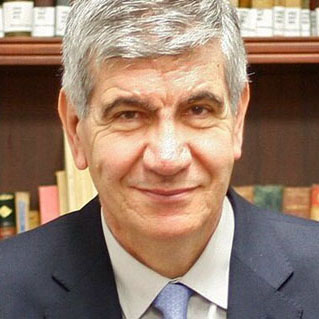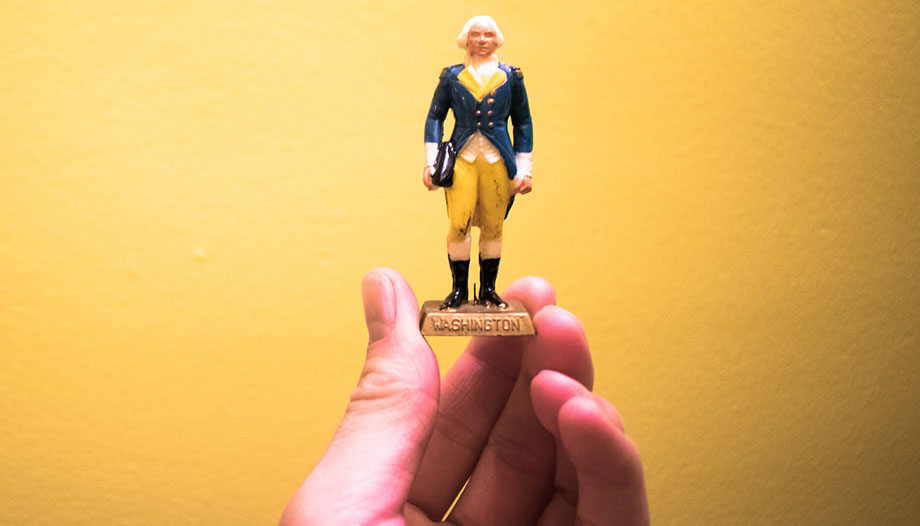A few weeks ago, the Secretary of State of the Holy See, the Secretary of State of the Holy SeeCardinal Pietro Parolin, visited the CEU University in Rome, Italy. St. Paul, and among other things, he asked politicians for a personal testimony.
Political action, in his opinion, should include "a well-founded anthropological dimension that places the person at the center" and recognize the value of justice as a "social regulator". He also requested that authority should not be exercised with "a personal, partisan or national vision", but with "an organized system of people and shared and possible ideas" in search of the common good.
His words came during the II International Meeting of Catholic Politicians, organized by the Archbishop of Madrid, Cardinal Carlos Osoro, and the Latin American Academy of Catholic Leaders, with the support of the Konrad Adenauer Foundation.
To comment on these ideas, and current events in political life, from the perspective of the social doctrine of the Church, Omnes interviewed Professor Manuel Bustos, director of the Angel Ayala CEU Institute of Humanities. Professor Bustos considers the "abusive prices" of electricity to be "a social problem".
-Cardinal Parolin stressed a few days ago that it is up to Catholic politicians to identify "the possible and concrete applications of social friendship and the culture of encounter"; and, even more decisively, to understand that "these are two components that are transmitted through individual behaviors", that is, through personal testimony. Could you elaborate on this idea, from your point of view?

Putting the person and the value of justice at the center are values that are not only Christian but also shared by a large part of our civilization, by our Western culture, even outside of it. They are certainly important. The problem is that politics has its own rules of the game, which are sometimes incompatible with this testimony, with this personal conviction, and end up clashing with the structures of the parties, which are fundamentally conceived to win the game against the other, and vice versa. That is to say, they are not so much a function of the common good, even though they are all committed to the idea of the common good (who is going to be against that?). But then the system itself has some shortcomings, which have not been remedied.
And one of these shortcomings is that you have to make use of a series of elements to be able to defeat the opponent, in order to be able to govern at some point. And that sometimes happens because of counter-values such as lying, or that the other is right, because it is a good thing for the common good, and you have to oppose him and say no and argue the opposite. And there is that which Machiavelli denounced, that sometimes in order to reach power it is necessary to use a series of means which are not very lawful, but which are used..., perhaps in a disguised way, but they are used.
-How would you summarize your position?
In short, I agree, of course, with what the Cardinal says. If only the person, justice as a social regulator, were placed at the center... But then, either we change, or we purify the political system we have, or things are quite difficult. And all those who want to give testimony, end up confronting their own party. There are certain slogans, certain things that if you don't follow them, you run the risk of being marginalized in the party itself. Maybe they don't throw you out, but you know that you are not going to get any position. That makes people bend in the end to the big lines set by the party, or by the leader, because the lines are sometimes variable.
-Among the aspects of the Church's social doctrine, at what point could authority, or power, best be concretized as service to others, as Pope Francis is recalling?
In reality, this is at the core of Christian life, of Christianity. It is authority as service, politics as service, power at the service of the common good. The other day precisely in the Gospel of the Mass, authority as service came up, when Jesus asked the disciples what you were talking about among yourselves, who was the most important, before what came later took place.
Jesus makes a speech for all mankind, about how man, and of course the Christian, the follower of Christ, should understand this as a service, not as something that I can use to serve my own interests, the interests of the party, etc. Authority must be at the service of those who need it most, because they are most in need. This is present in all the social doctrine of the Church, when speaking of the role of the State, the role of subsidiarity, the protagonism that society must have so that the State does not totally absorb all the initiatives. It is something that is at the foundation.
The very social doctrine of the Church was born precisely as a service to mankind, to humanity, so that it does not turn against man himself, against the weakest. The first great encyclical of the Church's social doctrine appeared with Leo XIII, in the midst of the industrial revolution, and then it spread to many more people, to other sectors of the population, as the Church's social doctrine progressed. It is in the doctrine of all the Popes, it is in Fratelli tuttiIt is one of the last ones, it is in John Paul II, in Benedict XVI, they all insist on it. There is a continuity in this theme. It is something nuclear.
-The Pope speaks at Fratelli tutti (n. 166) of "an individualistic and naive culture in the face of unbridled economic interests and the organization of societies at the service of those who already have too much power". What could be going wrong so that a service as elementary as electricity, a basic necessity, is so expensive for families? Does the so-called "revolving door" system seem fair to you? It also happens with the judiciary.
This is one more manifestation of what we have been saying. That politics is sometimes not understood as a service to the common good, of a temporary nature, because one can perpetuate oneself in the same political position, without the positions having a limited duration. It is a sign that instead of being that, that is to say, to be working for a few years in the position I have been given, I want to perpetuate myself not only in politics, but in the retributions, in having an important position, and then come the revolving doors that lead to the boards of directors, etcetera. This is very frequent in many companies. The same happens with the judiciary, in fact. These are bad practices. One should be there to serve as long as it is necessary or stipulated.
And then you have to go back to your profession. You cannot take advantage of politics to continue living well with a good salary for the rest of your life. They will have the right to a certain retirement, obviously, tomorrow, for the exercise they have had in these years, but I can no longer go back to being a judge, and then I go back to politics, and when politics is over I am still there... In the case of judges it is more problematic, because a greater neutrality is required.
-In terms of electricity bills?
In the case of electricity, I think the prices are bordering on abusive. It is true that we have an energy deficit, and we have to make up for it with electricity, because renewables have not given as much as they should... We do not want nuclear energy, we buy it outside, and what happens? Electricity goes up enormously. And as we all know, there is a part of taxes and levies that make the product even more expensive. This can be done by law. Both the above, as well as the electricity companies, this can be done by law, limiting taxes in one case, as well as judges and politicians, but in the end they all have interests, and it is impossible to do so. But this could be done by law. Other things we have mentioned are more complicated, because they depend on personal attitude, beliefs, other factors, but in this case it can be done by law. The question is whether they are interested in doing it. I have my doubts.
-In reality, professional corporations and other civil society organizations have become very small in comparison with the power of political power in general, I am not referring to a specific party. How do you see it?
Yes. It tends to pervade everything. We are already seeing these laws that have very strong moral components. The euthanasia law, the last one, the education law, and so on. They are made according to interests and criteria that leave out many people who do not share these ideas and who are sensitive to a morality that this law rejects in some way.
And then there is the social problem of these increases in the electricity issue and these things we have talked about. Those of us with more normal salaries, not to mention those with above-normal salaries, may be affected, but relatively speaking, by the price increases. But there are people for whom 30 percent of their salary, or 20 percent, is the payment of electricity or certain services, and that is very harmful. These people need to be looked after.
-Finally, Cardinal Parolin commented on the Cope channel that the current situation can be compared to the first centuries of the Church, when the first disciples arrived in a society that did not have Christian values, but through the witness of the first communities they managed to change the mentality and introduce the values of the Gospel in the society of the time.
Evidently, the testimony is very important, but there is a point on which I would perhaps disagree a little. I am referring to the early days of the Church. In those early times there was a social and cultural background of belief. It is true that not all Christians were Christians, Christians were a minority, but there was a respect for the law of God, because they were Jews, or for the gods, because they were Romans. There was a background of belief that does not exist today. Precisely the serious problem of our present culture is the estrangement from God. God does not represent within it a substantial or fundamental element.
By advocating or preaching a doctrine that accepts this principle of the existence of God, it does not reach many people. And then also, as an author said (I think it was Pemán, although I am not sure), the problem of Christianity (he was a believer), is that it has ceased to be new for today's society.
Even if they do not know him, they say they think they know him: how can I not know him, if I made my First Communion, or I had catechesis, or I taught religion class... And they remain with that primitive or initial idea, without developing it, and that's it. And when you go to talk to him about Christ, about the foundations of Christianity, he tells you: what are you telling me, I already know that. This is another problem. Christianity in the early days was a novelty compared to the very detailed religion of the Jews, or to Roman polytheism, but today we are in a society in which churches have been created, we have a Pope, we have priests, and Christianity for many centuries is what has sustained our culture. But now there is this "wisdom" of saying: I already know this. Evangelization in this post-Christian society is difficult.








